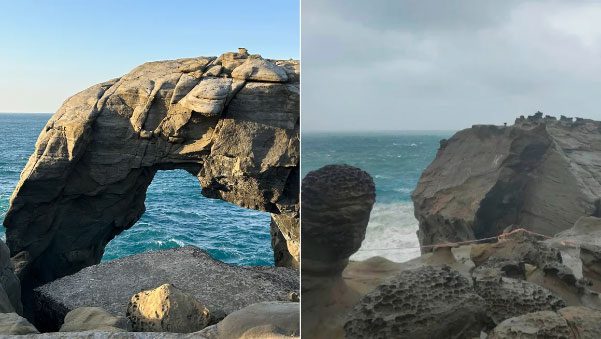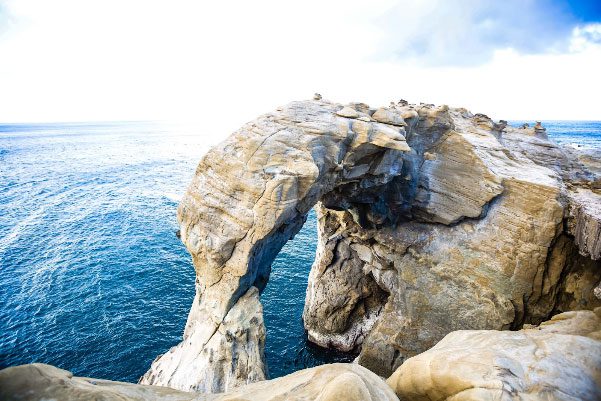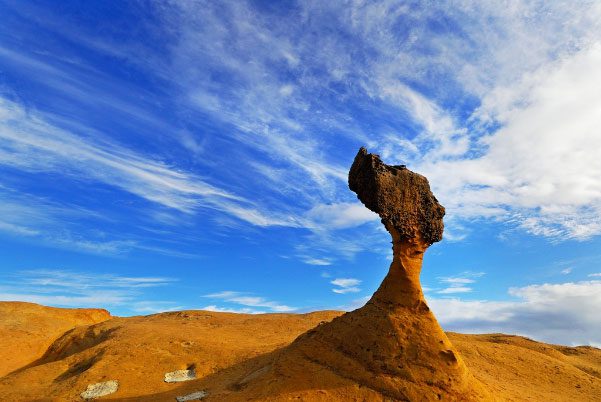Famous Attraction in Northern Taiwan (China) – The Iconic Elephant Rock Has Collapsed Due to Natural Forces.
According to the Shuangxi District Office in New Taipei City, the Elephant Rock collapsed and fell into the sea on the afternoon of December 16th.

Elephant Rock before and after the collapse. (Photo: CNN).
Elephant Rock, as its name suggests, resembles an elephant with its trunk raised high. This natural landmark is located on a narrow strip of land called Shen’ao, approximately 10km northeast of Taipei near the famous tourist site of Jiufen Old Street.
According to The Straits Times on December 18, this rock was previously situated in a military area but was opened to the public in 2000.
Since 2020, the area around the rock has been restricted to prevent tourists from climbing it due to the risk of collapse.
A notice on the official social media account of the Shuangxi District Office indicated that all attractions near Shen’ao will now be closed.
Mr. Shen Chuan-chou, a professor in the Department of Geology at National Taiwan University, stated in an interview with CNA that the rock’s collapse was entirely natural due to the continuous effects of seawater and wind. Additionally, its thin, arc-shaped form made it more susceptible to erosion.

Elephant Rock before 2019. (Photo: Josh Ellis).
Elephant Rock is not the only natural attraction along the northern coast of Taiwan that geologists are concerned about.
The Queen’s Head Rock, which resembles the head of Queen Elizabeth, located in Yeliu Geopark, is also at risk of collapse.

The Queen’s Head Rock. (Photo: Taiwan Net).
According to CNA, the circumference of the Queen’s Head Rock has shrunk by more than 120 cm compared to its original size and continues to diminish each year.


















































